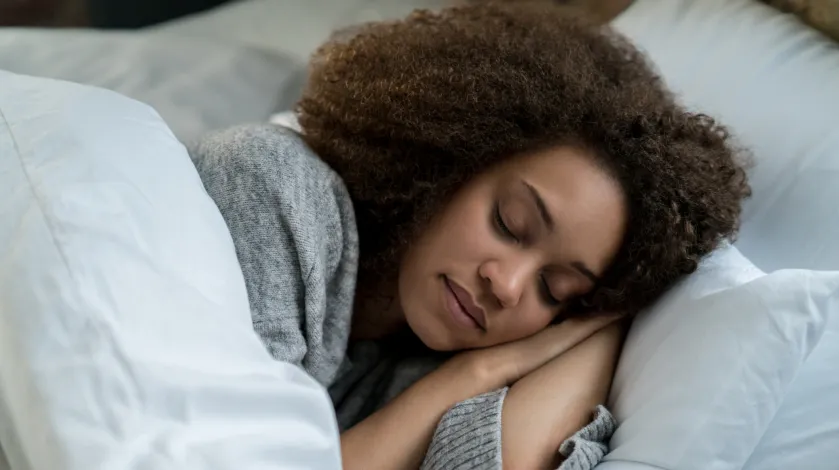How You Can Get a Better Night’s Sleep
Author

Peter Ostrow, MD
May is Better Sleep Month when we highlight the importance of quality sleep for our physical, mental and emotional health.
According to the Centers for Disease Control and Prevention (CDC), a third of U.S. adults report they get less than the recommended amount (7-8 hours) of sleep each day.
And studies show insufficient sleep is tied to many chronic diseases and conditions—including type 2 diabetes, obesity, heart disease, and depression.
Insufficient or poor quality sleep can affect us cognitively, emotionally and physically.
When we are tired, our cognitive skills, concentration and memory isn’t as good and we may experience brain fog.
Emotionally, we are often more irritable when tired and may feel depressed.
Fatigue can also take a physical toll, impacting motor function and our fine motor skills.
And there are hormonal effects as well.
Too little sleep affects sugar metabolism, can stimulate appetite leading to weight gain, and can decrease testosterone levels for men.
Chronic sleep deprivation can also negatively affect the immune system, making it harder to ward off infection or illness.
For all of these reasons, it’s important to make getting a good night’s sleep a priority.
Creating better sleep habits is the first step toward better slumber. Try these tips to get started.
Set and stick to a sleep schedule
You probably had a bedtime when you were a child and woke up refreshed and full of energy. It can happen as an adult, too.
Go to bed at a consistent time and wake up at a consistent time each day, even on weekends and holidays. This will bolster your body’s sleep-wake cycle (circadian rhythm).
Unplug from electronics
A century ago, before there were electrical devices and people depended on the sun and candles for light, we got more sleep.
Today, we’re all hooked on electronics – TVs, tablets, laptops and smartphones have become central to our lives. But all of these devices have a vibration frequency and emit blue light, which stimulates us to be awake.
Shut down your devices before bed, put them in another room, or give yourself a 30-minute time limit to scroll on your phone before going to sleep.
Watch what you eat and drink
Avoid eating a heavy meal within two hours of your bedtime – you won’t metabolize it. Don’t drink coffee or other caffeinated beverages, which are stimulants, six hours before heading to bed.
Drugs and alcohol can lessen both the quantity and quality of your sleep. Drinking alcohol worsens snoring and sleep apnea and should be avoided particularly before bed.
Don’t work out before turning in
Exercising regularly has many health benefits, including promoting better sleep.
But working out right before bed can backfire, by raising your body temperature and making it harder for you to fall asleep.
Yoga or gentle stretching are good alternatives to vigorous exercise and can also relax and help you to unwind.
Create a restful sleeping environment
For optimal sleeping conditions, your bedroom should be dark, quiet, and cool.
According to the Sleep Foundation, the best temperature for sleeping is between 65 and 68 degrees.
To minimize light exposure, room-darkening shades or a sleep mask can help.
Clear your mind
If the stress of the day is keeping you up at night or you have too much on your mind, try clearing your head by putting your thoughts down on paper – make a list or keep a journal.
Reading, meditation, breathing exercises and practicing mindfulness, are other things to do to ease you off to sleep.
Peter Ostrow, MD, is a sleep medicine specialist at South Shore Medical Center. Learn more about specialty care at South Shore Health.
Author

Peter Ostrow, MD








